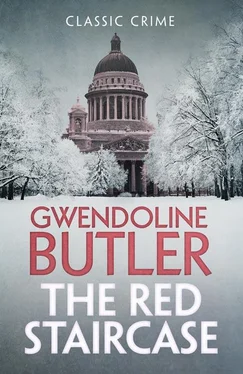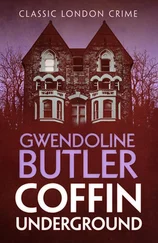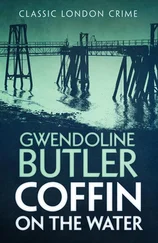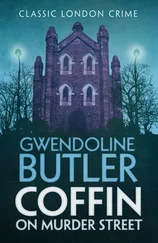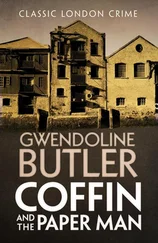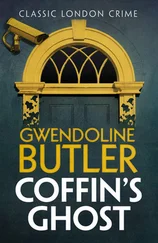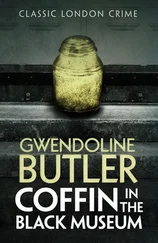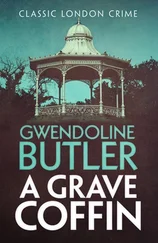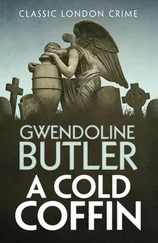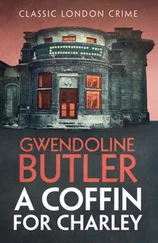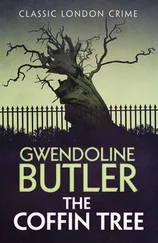GWENDOLINE BUTLER
Cover
Title Page GWENDOLINE BUTLER
Chapter 1
Chapter 2
Chapter 3
Chapter 4
Chapter 5
Chapter 6
Chapter 7
Chapter 8
Chapter 9
Chapter 10
Chapter 11
Chapter 12
Chapter 13
Chapter 14
Chapter 15
Chapter 16
Chapter 17
Keep Reading
About the Author
Also by the Author
Copyright
About the Publisher
‘Rose?’
As I look back to that time, two statues seem to stand out in my life as marking the twin poles between which my life was to swing. One was the statue of the Prince Imperial which faced the barrack square at Woolwich, and the other was the bronze equestrian statue of Peter the Great in St Petersburg. The house I was to have lived in with my young husband looked over the trees to the Prince Imperial. I never lived near the bird-stained figure of the great Romanov, which is probably just as well, for they say the whole area around is haunted ground and I have too many ghosts in my life as it is – prominent among them the girl that I then was, the young, the innocent, the incredibly naïve Rose Gowrie.
‘Rose?’
It was my sister Grizel speaking on that afternoon which somehow marks the beginning for me. Perhaps for the first time I let some of the worries I most certainly felt in my heart appear obvious to Grizel.
I raised my head from my work. That afternoon I had plodded on as usual at my books. Not as usual, Grizel showed irritation.
‘Do stop and come out. I want to go for a walk. Why do you stick at it? You know it’s not going to lead anywhere. A pure waste of time. Besides,’ she went on, ‘I hate to see you breaking your heart over it. You know now that you are never going to be a doctor. The thing’s impossible.’
‘I got so close … Three years at Edinburgh.’ I found I could talk about it almost without pain that afternoon. I could feel that beneath Grizel’s crossness was a warmth reaching out to me. She hadn’t shown a lot of sympathy for my medical ambitions until then. ‘It was close, you know, Grizel. I jolly near did it.’
‘And then the perennial Gowrie lack of money, and you falling in love with Patrick, dished it.’
‘What an elegant way of putting it,’ I said, laying aside my books of anatomy and morbid pathology. ‘Dished it, indeed. Perhaps I abandoned my studies because I had to, because of circumstances beyond my control – or that was how the Dean of Medicine put it when we said goodbye – but I haven’t given up being interested in it. And the army needs educated wives, so Patrick says. If we go to India, and that could happen, then any medical knowledge I have would be very useful in ever so many ways. Clinics and so on for the wives of the private soldiers and the native women, you know.’
‘You might have babies yourself by then.’
‘Yes,’ I said shortly. I hadn’t thought much about this side of my life yet. It was a long way off, I told myself. But I have an idea that underneath, the thought – half alarming, half exciting – was rumbling away. Patrick and I had met at a ball in Edinburgh and fallen in love so quickly. ‘I suppose soldiers always settle things in a hurry,’ I said from out of the depths of my thoughts.
I’m not quite sure what Grizel took this to mean because she gave a giggle and put her arm around me. ‘I won’t enquire into the meaning of that sentence, Rose dear, even if you know yourself. Sometimes one expresses a truth without meaning to. Only I’m not sure if it’s true of Patrick. I think it was you who swept him off his feet all the same, dear Rose, I know it was for me and young Alec you gave up Edinburgh, and that you minded dreadfully. We’re such a tiresomely expensive brother and sister to have.’
I couldn’t let her get away with that, though. There was a bit of truth in it, but I wasn’t going to lay the burden of it on her young shoulders. ‘What nonsense. It wasn’t like that at all. You had to have your turn, it was only fair. If anything, it was Alec’s fault for needing that extra coaching, the lazy young beggar. I meant to go back when the money got easier, but then I fell in love with Patrick. And as far as you’re concerned, I’m sure no one could be more economical. You make nearly all your own clothes and some of mine as well. And now Alec’s godfather is going to pay for him at Eton, so you see neither of you is so expensive.’
‘I suppose the gods gave you Patrick as a reward,’ said Grizel.
‘You could put it like that.’ Patrick was fairly god-like himself, I thought, but I managed to restrain myself from saying so.
‘Well, I hope you’ll like army life, that’s all.’
‘Oh, of course I will. I’ve made up my mind to like it.’ Patrick Graham was an army officer, a gunner, serving with the Royal Artillery at Woolwich. Hardly the smartest of regiments, but one which suited Patrick, who was interested in machines and engines and not in riding horses. The Grahams – mother, grown-up son and young daughter – had moved to the village near Jordansjoy just before Patrick and I met and fell in love. Indeed, it was because his mother lived near the ancient, crumbling ancestral house of the Gowries that our hostess at the ball introduced us. I don’t think that Mrs Graham had reckoned on Jordansjoy giving her a daughter-in-law before her first Christmas in her new home.
There were three of us at home. I was the eldest left, then Grizel and then young Alec. Robin, my elder brother, our pride, had gone to India with his regiment five years before. He was the bravest and the best of us all. And then he died, killed in a small incident in the border war with Afghanistan, a little encounter that no one ever heard of again. He died of injuries that better and prompter doctoring might have cured. I think it was then that the impulse towards medicine was aroused in me. Or did it have a deeper root? Sometimes I have thought that its beginnings go even further back, beyond conscious memory altogether. There are things I don’t admit even to myself.
Jordansjoy has seen many tragedies in its hundreds of years of history, but Robin’s was one of the sharpest. The neighbours were tactful and left us alone, and we drew in on ourselves, perhaps more than we should have done, Grizel and I and Alec and old Tibby. Tibby must have a word all to herself, because there is no one like her and she has grown out of the soil of Scotland and her period in it. I said something like this to her once, and she said I made her sound like some great monument. She has been nurse, housekeeper and governess all rolled into one since our parents died. When Robin was killed she was our great support, unsentimental and forthright, quite devoid of selfpity, and not allowing us to repine either.
‘Forbye you’re young,’ she said stoutly. ‘With all your lives before you.’
It is then that I had taken myself off to Edinburgh to study medicine at the university there. It was in my heart to persevere, but the money would not run to it in the end. So I stopped. But as with all human actions, there were many reasons for my starting in medicine and many for my giving up. I can see that now.
‘I hope you’ll like the army,’ repeated Grizel, as if I hadn’t already said that I intended to. ‘Tibby says that it will trim the rough corners off you.’
‘Always supposing I want them trimmed.’
‘Oh, she never said it was a good thing. She likes those rough corners and so do I. When you are sharp and speak your mind, and when you stick out for your own way, I like you for it and so does she. She just said it would happen, that’s all.’
Читать дальше
